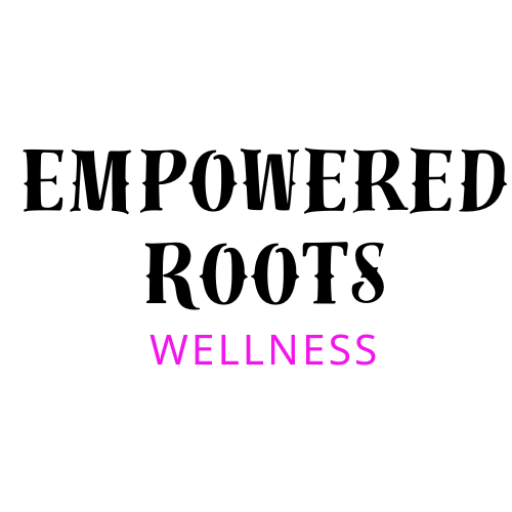It is important to remember that our hearts require more than just proper nourishment to thrive. We also need to be taking care of ourselves physically and emotionally too! These 5 heart health tips all work harmoniously together and build upon one another.
1) Eat healthy fats
A commonly held belief among people is that following a “low fat” diet is essential for maintaining good heart health. However, the primary source of energy for our heart is derived from fatty acids. Consuming products labeled as “low fat” can give rise to numerous issues since fat is often replaced with processed sugar, which is an unhealthy carbohydrate. Having a diet high in carbohydrates can potentially lead to insulin resistance and an increase in LDL cholesterol levels, raising the long-term risk of developing cardiovascular diseases (Ormazabal, V., Nair, S., Elfeky, O. et al., 2018). Incorporating fatty acid into our diets aid in regulating blood sugar levels and provide the necessary fuel for our hearts.
It is crucial to understand that our bodies require cholesterol for a variety of essential functions. Cholesterol is involved in the construction and maintenance of our cells, as well as in the production of bile, which aids in digestion. Moreover, it serves as a precursor to certain hormones that play a vital role in proper bodily function. In the event that we do not obtain cholesterol through our diet, our bodies have the capability to produce it independently.
To ensure a healthy intake of fats, there are several recommended sources. These include organic cold pressed olive oil, avocados, whole eggs, raw nuts and seeds, as well as small fatty fish. It can also be beneficial to avoid unhealthy fats such as vegetable and canola oil. By incorporating these sources into our daily food intake, we can ensure that our body receives the necessary healthy fats it needs.
2) Lower stress
Studies show that our emotional health plays a role in our heart health too. In fact, there have been both large and small studies that have established a strong associations between cardiovascular disease and conditions such as depression, anxiety, PTSD, and chronic psychological stress (Cohen BE, Edmondson D, Kronish IM, 2015). I share this information not to burden you with additional stress, but rather to emphasize the importance of effectively managing it.
Breathing has a profound impact on our emotional health. I have often observed that when my clients fully concentrate on their breath, they realize that their breathing is actually shallow. To address this, I encourage you to dedicate a few minutes each day, preferably prior to meals, to practice deep breathing techniques. Taking 10 intentional, focused, and deep breaths can effectively reduce stress levels and improve digestion as well!
3) Exercise
Exercise not only benefits your heart health, but also helps with eliminating stress. The intensity will vary based on various factors such as your current stage of life, age, and overall well-being. Keep in mind that just doing vigorous household chores that raise your heartbeat is still considered exercise. Research has shown that just 20 minutes a day can effectively reduce inflammation in the body (Sandoiu, 2017).
4) Support proper digestion
Our heart requires many essential nutrients to work ideally; proper digestion and absorption of those nutrients is important. Fatty acids serve as the heart’s primary energy source, while amino acids, B vitamins, vitamin K2, magnesium, and calcium are also crucial for its proper function. Calcium and B vitamin absorption is dependent on proper stomach pH. The digestion of protein is essential in order for amino acids to be readily available for the heart. Bile production from a properly functioning liver/gallbladder is important in digesting fats adequately. An optimal balance of microorganisms in the digestive system, known as a healthy microbiome, is essential for synthesizing both vitamin K2 and B vitamins (NTA, 2020). When we are digesting our nutrients properly, our heart is being fed the nutrients necessary for its ideal functioning.
5) Stay hydrated.
Staying hydrated doesn’t just mean drinking water. Adding a pinch of high quality salt, such as Baja Gold Sea Salt or Celtic Sea Salt to a few glasses of your water throughout the day will help ensure that you are getting the proper electrolyte balance which also has an impact on heart health (Weglicki W, Quamme G, Tucker K, Haigney M, Resnick L., 2005). A general rule is to drink half your body weight in ounces each day. This does vary based on age, activity level, diet, etc., but this is a good guideline to start with.
When possible, opt for filtered water over tap water as it is important to be aware of the quality of the water you consume, use for cooking, etc., and the potential effects on your health. If you go to this website, you will be able to search for your local water source and see just that. https://www.ewg.org/tapwater/
Check out more blogs by this author here.
References:
Cohen BE, Edmondson D, Kronish IM. State of the Art Review: Depression, Stress, Anxiety, and Cardiovascular Disease. Am J Hypertens. 2015 Nov;28(11):1295-302. doi: 10.1093/ajh/hpv047. Epub 2015 Apr 24. PMID: 25911639; PMCID: PMC4612342. https://pubmed.ncbi.nlm.nih.gov/25911639/
Nutritional Therapy Association. (2020) Cardiovascular Health Student Lecture [PDF document].
Ormazabal, V., Nair, S., Elfeky, O. et al. Association between insulin resistance and the development of cardiovascular disease. Cardiovasc Diabetol 17, 122 (2018). https://doi.org/10.1186/s12933-018-0762-4
Sandoiu, A. Just 20 minutes of exercise enough to reduce inflammation, study finds. Medical News Today. 2017 Jan https://www.medicalnewstoday.com/articles/315255
Weglicki W, Quamme G, Tucker K, Haigney M, Resnick L. Potassium, magnesium, and electrolyte imbalance and complications in disease management. Clin Exp Hypertens. 2005 Jan;27(1):95-112. doi: 10.1081/ceh-200044275. PMID: 15773233. https://pubmed.ncbi.nlm.nih.gov/15773233/



